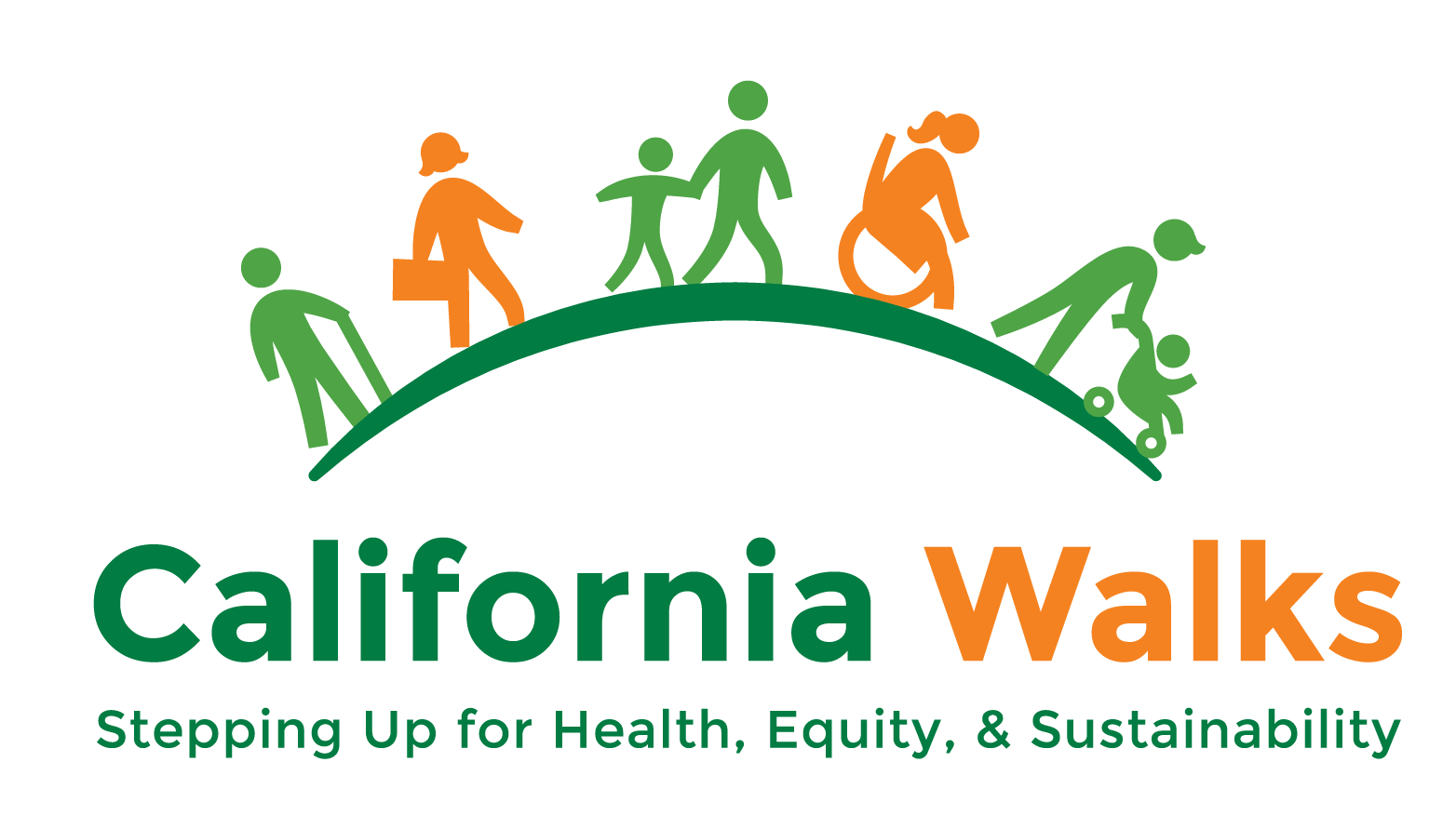Bridging the Transportation Equity Conversation from the National to the State and Local Levels
California Mobility Justice Delegation at Equity Summit 2018, Chicago, IL. Photo credit: Maria Sipin
A few months ago, the Cal Walks team had the opportunity to attend the national Equity Summit in Chicago, IL, organized and hosted by PolicyLink to learn the latest practices, policies, and strategies to advance the transformative change we need in the fight for social justice. During our week in Chicago, we learned so much from our colleagues working not only in transportation sector but also from those working in the fields of affordable housing and development, state-sanctioned violence against black bodies, and even electoral politics. Cal Walks also helped organize the first ever California Mobility Justice Delegation to attend the Summit to bring together the many advocates in California working in Sacramento and on-the-ground to advance transportation justice. A big take-away from our delegation was a need and a desire to connect transportation and mobility issues across the state, while also allowing for regional context and connections to drive forward solutions at the local level. The national Equity Summit and Mobility Justice Delegation reinvigorated us and laid the groundwork for our work on the Steering Committee to re-envision California’s Transportation Equity Summit, hosted by TransForm and ClimatePlan.
Cal Walks ED Tony Dang moderating opening panel of Transportation Equity Summit featuring Ellen Greenberg, Katie Valenzuela, and Tamika L’Ecluse
Though our limited time together meant we were only able to scratch the surface on many issues, the day was still filled with big discussions and practical takeaways for participants. . One of the day’s highlights was the lunchtime panel–Beyond the Big Cities: Transportation Solutions for the Rest of California–featuring Genoveva Islas, Rey León, and Edgar Garibay speaking to he unique and specific needs of the Central Valley. The discussion covered the importance of integrating economic opportunities and job creation for residents in the form of mobile vendors to covering the long history of “raiteros”– community members who would offer rides as favors or in exchange for money and other trade-offs (AKA the OG ride-share). At the core of the panel discussion was the diverse needs of the Valley and how often this region of the state gets left out in conversations about equity and transportation–including in statewide forums like the Summit itself. With larger and often times more powerful advocacy groups and agencies from urban areas, like the Bay Area and LA, the Central Valley is often an afterthought. This panel brought to light the space needed for continuous dialogue of what we can do to improve the lives of community, while also learning from our bigger urban areas.
Genoveva Islas, Rey León, and Edgar Garibay lifting up the needs of the Central Valley
The afternoon session, Breaking Down State Siloed Work, focused on the importance of including local voices to guide state work. This panel carried forward another common thread from the national Equity Summit: How do state-level organizations–like CalBike, Policy Link, and Cal Walks–do better as partners to keep local voices at the core of state-level policy change. The session discussed current work around mobility justice and stepping back to ensure local voices are heard at the state level, especially when conceiving of legislation where a bottoms-up approach is better suited to lift up local context and needs. The panelists also discussed the emerging term of mobility justice, which is a holistic concept that centers solutions on how best to address the barriers that impact a person’s ability to move safely and with dignity at the local level.
South Kern Youth Leaders Share their Work and Community’s Needs to Assemblymember Fong
In order to connect local voices to the Summit, the Cal Walks team invited youth and adult allies from the Greenfield Walking Group to participate in the Summit so that their work in Greenfield, an unincorporated area near the city of Bakersfield, was recognized by and could help inform the work of more established organizations around the state . After the Summit, the five youth and their adult allies met with their representatives, including Assemblymember Fong and staff for State Senator Fuller. The youth not only shared their successful advocacy efforts–including their campaign to secure $5.6 million to improve the Rexland Acres community–but also emphasized the continued need for investments in communities like Greenfield and Rexland Acres.
Both the national Equity Summit and the Transportation Equity Summit helped create connections and offered an opportunity to recenter our organization, our partners, and residents in the “why” of this work. The Cal Walks team is looking forward to applying the lessons learned from the summits to our work and supporting our partners and community residents in identifying opportunities to advance equity and justice in our transportation system.




